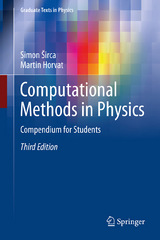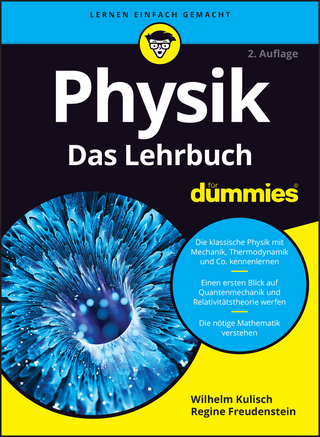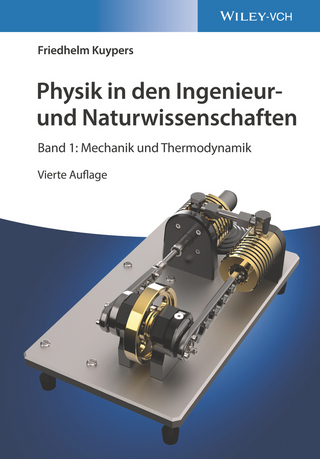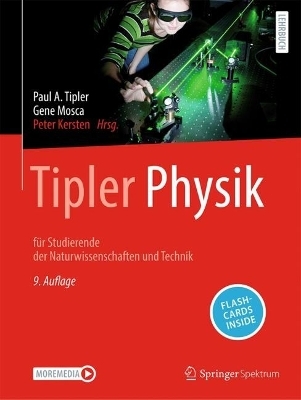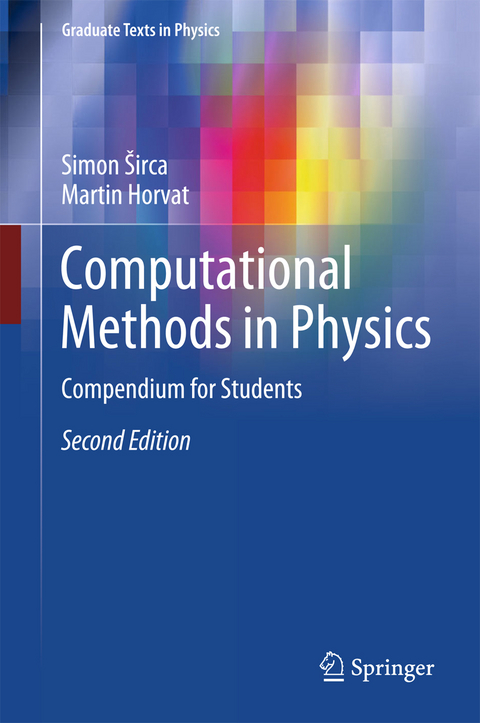
Computational Methods in Physics
Springer International Publishing (Verlag)
978-3-319-78618-6 (ISBN)
This book is intended to help advanced undergraduate, graduate, and postdoctoral students in their daily work by o ering them a compendium of numerical methods. The choice of methods pays significant attention to error estimates, stability and convergence issues, as well as optimization of program execution speeds. Numerous examples are given throughout the chapters, followed by comprehensive end-of-chapter problems with a more pronounced physics background, while less stress is given to the explanation of individual algorithms. The readers are encouraged to develop a certain amount of skepticism and scrutiny instead of blindly following readily available commercial tools.
The second edition has been enriched by a chapter on inverse problems dealing with the solution of integral equations, inverse Sturm-Liouville problems, as well as retrospective and recovery problems for partial di erential equations. The revised text now includes an introduction to sparse matrix methods, the solution of matrix equations, and pseudospectra of matrices; it discusses the sparse Fourier, non-uniform Fourier and discrete wavelet transformations, the basics of non-linear regression and the Kolmogorov-Smirnov test; it demonstrates the key concepts in solving sti di erential equations and the asymptotics of Sturm-Liouville eigenvalues and eigenfunctions. Among other updates, it also presents the techniques of state-space reconstruction, methods to calculate the matrix exponential, generate random permutations and compute stable derivatives.
Simon S irca was born on February 27, 1969, in Ljubljana, Slovenia. He is Professorof Physics at the Faculty of Mathematics and Physics, University of Ljubljana, wherehe has been teaching courses on Probability for Physicists, Computational Physics andModel Analysis. He is head of the research group Structure of Hadronic Systems activein the OOPS and BLAST Collaborations at MIT, Hall A Collaboration at Thomas Jef-ferson National Accelerator Facility (USA) and the A1 Collaboration at MAMI in Mainz(Germany). His main research field is the study of hadronic structure and dynamics byscattering of electrons on light nuclei, exploiting polarized beams, polarized targets, andrecoil polarimetry. He is also involved in theoretical work on quark models of hadrons,with a focus on electroweak processes. Martin Horvat was born on April 25, 1977, in Maribor, Slovenia. He is Assistant Pro-fessor at the Faculty of Mathematics and Physics, University of Ljubljana, where he hasled the Physical Laboratory Course and taught Basic Applied Mathematics and PhysicsI and II. His research work is devoted to classical and quantum non-linear dynamics,to transport properties in extended systems, to the quantum-classical correspondence, totheoretical and applied aspects of quantum mechanics on the classical phase space, as wellas to statistical mechanics and its origin in dynamics. He is also involved in the researchof relativistic global navigation satellite systems and in modeling of astrophysical bodies,mainly eclipsing binary stars and synthesis of their observables.
Basics of numerical analysis.- Solution of nonlinear equations.- Matrix methods.- Transformations of functions and signals.- Statistical description and modeling of data.- Modeling and analysis of time series.- Initial-value problems for ordinary differential equations.- Boundary-value problems for ordinary differential equations.- Difference methods for one-dimensional partial differential equations.- Difference methods for partial differential equations in more than one dim.- Spectral methods for partial differential equations.- Inverse methods.
| Erscheinungsdatum | 17.07.2018 |
|---|---|
| Reihe/Serie | Graduate Texts in Physics |
| Zusatzinfo | XXIV, 880 p. 268 illus., 20 illus. in color. |
| Verlagsort | Cham |
| Sprache | englisch |
| Maße | 155 x 235 mm |
| Gewicht | 1514 g |
| Themenwelt | Naturwissenschaften ► Physik / Astronomie ► Allgemeines / Lexika |
| Naturwissenschaften ► Physik / Astronomie ► Theoretische Physik | |
| Schlagworte | Computational Algorithms • Computational Physics Textbook • Mathematical methods in physics • Numerical Analysis Textbook • Numerical Methods in Physics Compendium • polynomial equations • Scalar Equations • Solution of Nonlinear Equations • Vector Equations |
| ISBN-10 | 3-319-78618-0 / 3319786180 |
| ISBN-13 | 978-3-319-78618-6 / 9783319786186 |
| Zustand | Neuware |
| Haben Sie eine Frage zum Produkt? |
aus dem Bereich
